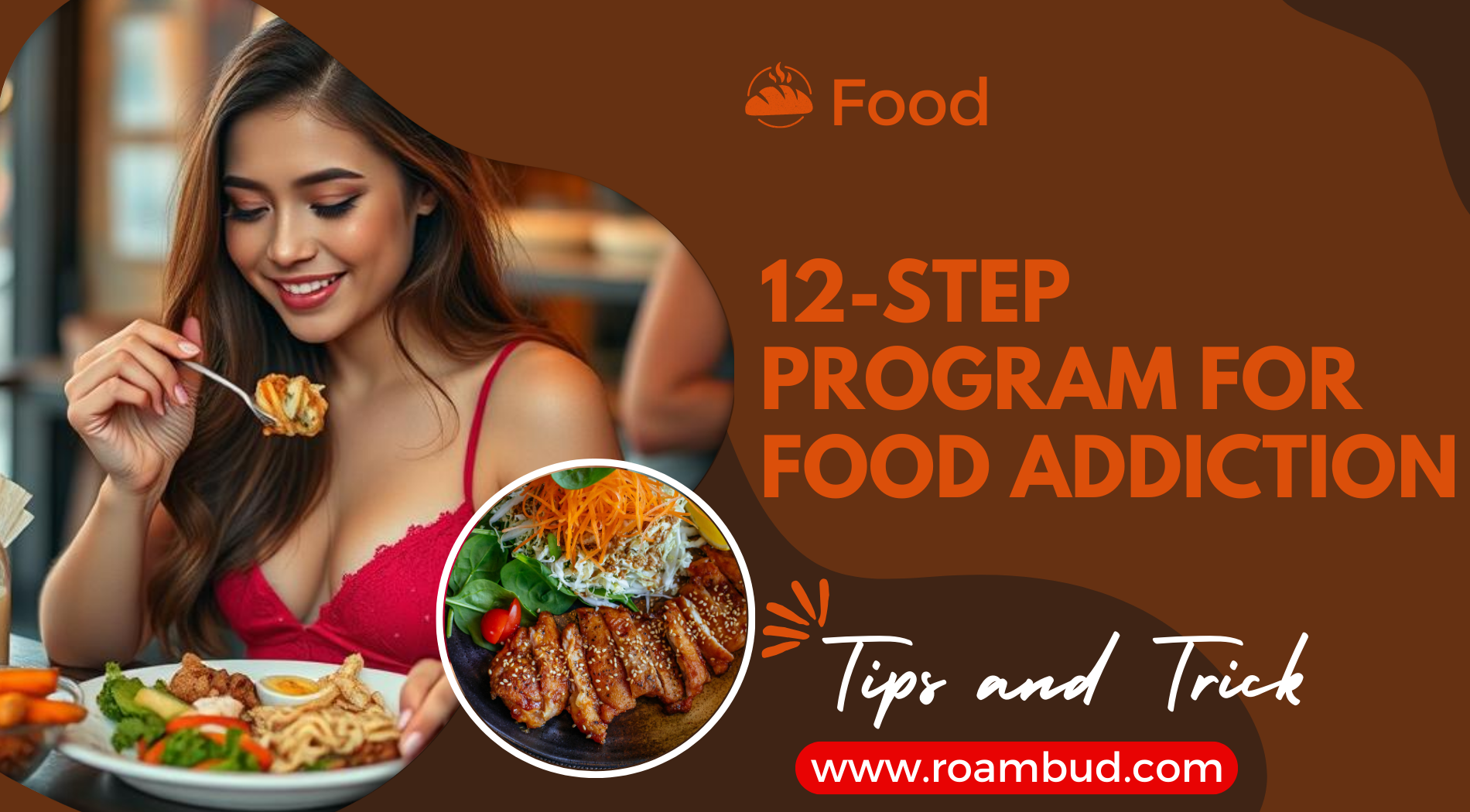I felt totally confused when I first saw that my connection with food was spiralling out of hand. For comfort, joy, and even stress release, I turned to food. Once sporadic, what started as occasional indulgence turned into a destructive cycle of guilt and binge eating. Though I didn't know where to start, I knew I needed support. At that point I came onto the 12-step Program For Food Addiction. Providing hope and a clear road to recovery, this program became my lifeline. If you suffer from food addiction, I hope my journey may help you see how this procedure could really change your life.
What is the 12-Step Program for Food Addiction?
The 12-step therapy for food addiction is an ordered plan meant to help people kick their food-additions. Despite targeting food-related issues, it bears similarities to organisations such as Alcoholics Anonymous (AA). The treatments combine the psychological and spiritual aspects of food addiction with its physical ones. Programs like Overeaters Anonymous's 12 steps provide an informal setting whereby people share their tales and support one another down the journey.
Read also: 21-Day Sugar Detox Food List
Step-by-Step: How the 12-Step Program Works

Allow me to break it down for you. Every action builds on the one before it; every component of the process is meant to enable you to take charge of your life and your relationship with food.
1. Admit There’s a Problem
For me, this was the most challenging element. Accepting the reality of my impotence over eating paved the way for my recovery.
2. Believe in a Higher Power
For this stage, you need not be religious. It was about believing that someone greater than myself might lead me towards healing. It can be just hope, faith, or nature.
3. Commit to the Process
This stage meant for me to hand my life and will to this greater force. Though it was first dreadful, it was also liberating.
Breaking the Cycle of Food Addiction
One thing the classes made clear was how emotional triggers drove my binge-eating. By using the stages, I discovered how to face these emotions rather than resorting to food as solace. Working through the stages to quit binge-eating helped me observe behaviour trends. One big cause, for example, was stress. Learning new coping mechanisms—such as meditation or journaling—became vital for my healing.
Spiritual Healing for Food Addiction
I had no idea how much my food patterns reflected my spiritual condition. The program's focus on spiritual therapy for food addiction let me relate to myself on a more profound level. This has to do with inner calm and clarity, not with religion.
Read also: Delicious No-Cook Finger Foods for Parties
Building a Food Addiction Support Network
One cannot recover on their own. My safety net turned out to be the food addiction support system I created from contacts and meetings. Hearing others relate to me helped me realise I wasn't alone.
Food Addiction and Emotional Health
Food and emotions clearly have connection. The training clarified for me how emotional health makes food addictive. Dealing with how I felt helped me lower my appetite and choose better.
Managing Food Cravings with 12 Steps
For me, cravings reflected an ongoing struggle. The training made me feel less stressed by teaching me to pay attention one day at a time attention. It also inspired me to swap out bad behaviours with healthy ones, like going for a stroll rather than grabbing some snacks.
Creating a Food Addiction Treatment Plan
Recovery is unique. My therapy for food addiction included regular writing, meetings, and working with a sponsor. For myself, structure and duty were truly vital, and these stages gave both.
Long-Term Recovery from Food Addiction
The 12-step program for food addiction has beauty in that it is a future commitment rather than a short fix. I still follow the steps and depend on the tools even now.
Key Takeaways from My Journey
-
Though the battle with food addiction feels strong, recovery is possible.
-
The 12-step program for food addiction aims to achieve spiritual, emotional, and internal recovery.
-
Long-term success depends on a solid form for food addiction help.
-
• However, the trip requires managing mental health issues and controlling hunger.
Should you be ready to start, I advise you to look at plans such as Overeaters Anonymous 12 steps. You can break the cycle of food addiction and find victory at any time.
Conclusion on 12-step Program For Food Addiction
For me, the 12-step program for food addiction has been a transforming road trip. It is a road to hope and healing, not only a procedure. Through the program, I discovered support in a caring group, developed a better connection with food and myself, and acquired tools to deal with the emotional and spiritual origins of my addiction. I advise you to take that initial step if you suffer from food addiction. Attend a meeting, ask for help, or just admit the issue; recovery is achievable. Though the route may be difficult, the autonomy and peace you discover make it all worthwhile. Help is accessible; you do not have to go to a better, happier life by yourself; it may begin now.
FAQs: 12-Step Program for Food Addiction
What are the 12 steps for addiction?
-
Accept the reality.
-
Have faith in a higher power.
-
Submit to the higher power.
-
Embark on some soul-searching.
-
Admit your failings.
-
Be ready to let go.
-
Show humility.
-
Show willingness to make amends.
What s the best way to break a food addiction?
-
Eat small and frequent meals to prevent spikes in hunger.
-
• Consume lots of fibre.
-
Don't keep trigger foods in the house.
-
Keep yourself busy.
-
If possible, use the DVR on your television.
-
Create non-food rewards for eating healthy.
-
When in doubt, give in to a healthy snack.
Is there a 12-step program for love addiction?
Love addiction can consume a person's life and cause continuous emotional anarchy. However, deliberate therapy and treatment can overcome it, just like other addictions. Based on the effective recovery model applied in Alcoholics Anonymous, groups like Sex and Love Addicts Anonymous follow a 12-step program.
What triggers food addiction?
Highly appealing foods loaded with sugar, salt, and harmful fats are the most often occurring trigger foods, says Lena Beal, M.S., RD, LD, a therapeutic dietitian at Piedmont's Fuqua Heart Centre. This covers soft drinks, chips, cakes, cookies, pies, and so forth. You shall crave more the more you consume.
Is there therapy for food addiction?
Address therapy. The key aspect of treatment for eating disorders is talk therapy—also called psychotherapy. It entails often seeing a psychologist or another mental health worker with specific eating problem treatment expertise. Therapy might run from months to several years.
